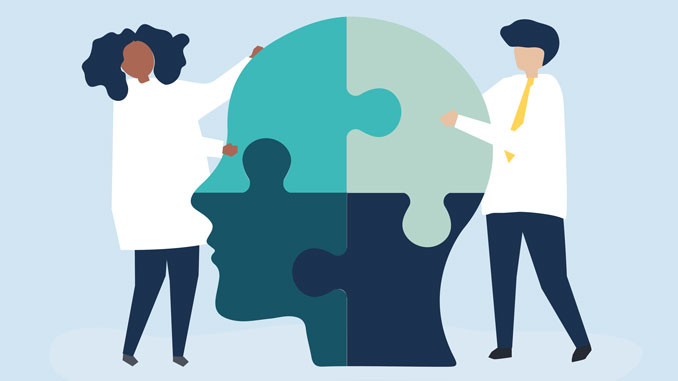
If you or someone you know is suffering from symptoms of depression, you’re not alone. According to Mental Health America, the number of youths diagnosed with severe depression and the number of adults with suicidal ideation are both increasing. The pandemic certainly has also had a negative impact. The Mental Health American website states: “The number of people looking for help with anxiety and depression has skyrocketed.” So, what can we do?
First, understand that it’s not only okay to acknowledge that you are struggling, but it is important to do so. “One of the things that I often have clients express to me is about the ruminating thoughts brought on by stress and feeling so overwhelmed by these thoughts and situations that it causes difficulty sleeping at night or interferes with their ability to work during the day,” says Cathy Mangaoang-Welsh, a licensed clinical social worker with St. Joseph’s Behavioral Health Center. “When you recognize that you are struggling, it’s time to take a step back and seek help if you need it.”
Next, make healthy lifestyle choices. This includes getting enough sleep (7-9 hours per night), maintaining a regular daily routine, regularly exercise or keeping movement in your day, balancing obligations with activities you enjoy, and making sure you limit screen time on mobile devices and TV. “Balance is a really important factor for everyone to consider. Ask yourself if you’re taking the time to not only balance your work and family life, but also your own personal self/balance,” says Mangaoang-Welsh. “Taking time to do activities that you enjoy is important. Whether it be gardening, giving yourself a manicure, or simply going for a walk. Make time for you.”
It’s also a good idea to limit exposure to negative or worry-inducing news stories and social media. Check these things once per day, for a short amount of time, and don’t allow yourself to fixate on them. Boundaries will encourage positive thinking.
Choose joy by practicing daily gratitude and meditating. Each day think about three things you are grateful for that have made you happy. When you do this, you can practice and train your brain to look for those types of things to notice them throughout the day. Mindfulness is key.
If you feel like you might be struggling, St. Joseph’s Behavioral Health Center offers free behavioral evaluations to help identify an individual’s needs and make appropriate referrals.
Seek Help
St. Joseph’s Behavioral Health Center
(209) 461-2000

